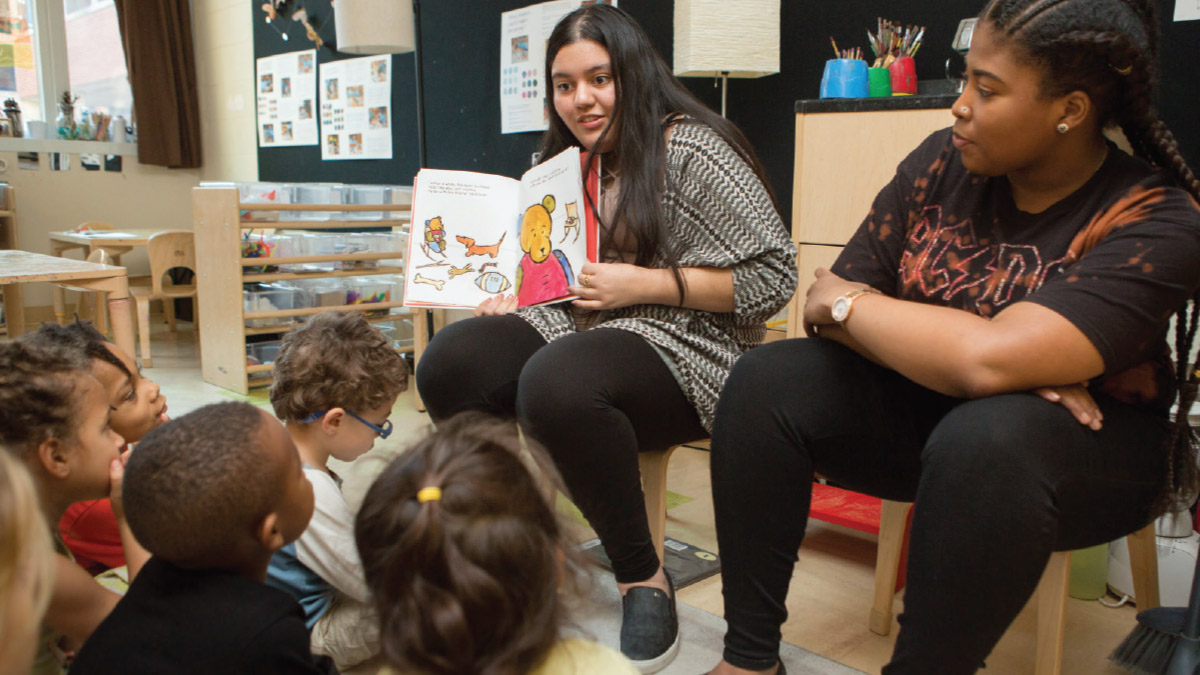
Making Better Matches in Teacher Residency
3 strategies for establishing good teacher resident–cooperating teacher pairs.
Topics: Teacher Effectiveness
Teacher residency programs are tools that aim to address teacher shortages by preparing and retaining effective educators. A key characteristic of a high-quality teacher residency program is a yearlong clinical practice in which the residents teach alongside expert mentors or cooperating teachers. Key components of the clinical practice must be managed to ensure resident teachers’ success, however, including how they are matched with cooperating teachers.
In “Considerations for Matching Residents With Cooperating Teachers: Making the Most of the Residency Clinical Experience,” a report produced in 2022 by the Department of Education’s Region 5 Comprehensive Center, we identified several important considerations for ensuring the quality of the match between a cooperating and resident teacher—some of which involve the insights and actions of school principals.
Principals have the most direct knowledge of teachers’ instructional and mentoring skills and are therefore critical to involve in the selection and matching process. Here are several strategies school leaders can draw from the literature to promote better matches between cooperating and resident teachers and improve the effectiveness of a teacher residency program:
1. Look beyond logistics to make matches. In most cases, matching a resident and a cooperating teacher is driven by logistics, such as state standards, accreditation requirements, compatibility by subject area or grade level, geographic proximity, and availability and willingness of a cooperating teacher. But the quality of a cooperating teacher’s instructional practices and—to a lesser extent—their mentoring skills are critical to successful clinical practice experiences.
Principals can work with the district and education preparation programs to incorporate teaching effectiveness and mentoring skills into the matching process. For example, principals might incorporate teacher evaluation ratings and student achievement data into the selection process. Further, principals can help guide cooperating teachers’ professional learning opportunities to enhance mentoring skills.
2. Seek matches with compatible styles. Making a good match between the resident and the cooperating teacher is important to the success of the resident’s transition to full-time teaching. One of the strongest determinants of a successful clinical experience is candidates’ perception of the resident–cooperating teacher relationship. Residents feel better prepared to teach when they share similar values, attitudes, working styles, and teaching styles with cooperating teachers.
3. Use the available tools to inform matches. Some teacher residency programs have adopted personality inventory instruments and other surveys to assess the level of compatibility between resident and cooperating teachers as part of the matching process. One promising instrument is the Mentoring Relationship Questionnaire developed by Brad Greiman at the University of Minnesota, which has proven to be a good predictor of perceived satisfaction with the mentoring relationship for residents and cooperating teachers alike. The popular Myers-Briggs Type Indicator has also been used to gauge the likelihood of a beneficial match with less success, but it is useful in identifying areas where cooperating teachers might improve their mentoring skills.
Teacher residency programs must harness the expertise of effective teachers who can also serve as cooperating teachers. While effective matches between teacher residents and cooperating teachers might happen by chance, educator preparation programs, districts, and school principals can improve the odds of a high-quality pairing by taking steps to incorporate these strategies into the resident and cooperating teacher matching process.
Matthew Finster is a principal researcher at Westat, a research firm based in Rockville, Maryland,
and provides technical assistance to U.S. Department of Education grantees.
Mark Fermanich is a senior associate at APA Consulting and the author of “Considerations for Matching Residents With Cooperating Teachers: Making the Most of the Residency Clinical Experience.”

